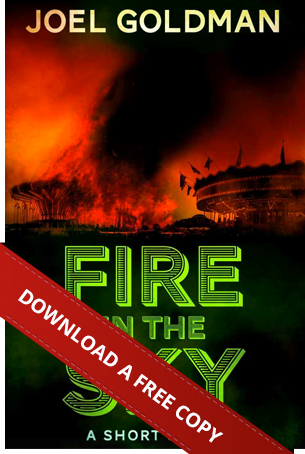 It took me 10 years to finish writing the first of my many crime novels. I like to say that I was a ten-year overnight success. I started writing Motion to Kill while still practicing law. Read about the serendipitous bit of conversation with one of my partners that got me to thinking about writing a novel in my post, So You Want to Write Crime Novels and Thrillers. But it takes more than just formulating the story in your mind and having the confidence that it’s good enough that people will want to read it.
It took me 10 years to finish writing the first of my many crime novels. I like to say that I was a ten-year overnight success. I started writing Motion to Kill while still practicing law. Read about the serendipitous bit of conversation with one of my partners that got me to thinking about writing a novel in my post, So You Want to Write Crime Novels and Thrillers. But it takes more than just formulating the story in your mind and having the confidence that it’s good enough that people will want to read it.
Secret to Writing a Novel that Sells
Stick with me and I’m going to give you the secret to writing a novel that sells. First, you must understand that everyone has a story to tell. But you can’t tell your story if you don’t put it all on a page. Once you’ve finished writing your novel, how do you know if it’s good enough? That it will sell? You don’t.
The secret, though, is persistence and determination. As I look back on that first ten years of writing, during which I wrote two books that never sold, I realized that I put in the requisite 10,000 hours that Malcolm Gladwell says it takes to truly master a specialized skill or art. When I think back on those years, I always remember my mother, of blessed memory, who gave me a business card for a man named Miller Nichols for whom she worked. On the inside of the card, Nichols had printed the following quote from President Calvin Coolidge:
“Nothing in the world can take the place of persistence. Talent will not; nothing is more common than unsuccessful men with talent. Genius will not; unrewarded genius is almost a proverb. Education will not; the world is full of educated derelicts. Persistence and determination alone are omnipotent. The slogan ‘Press On’ has solved and always will solve the problems of the human race.”
That’s the secret. In order to press on and with persistence and determination, you’ve got to remain productive and work at your goal with consistency.
Press On – That Novel Won’t Write Itself
Your novel won’t write itself. You must remain productive and forge ahead toward your goal of completion. Here’s a listing of tools that might help you along the way:
- NaNoWriMo – The National Novel Writing Month’s “thirty days and nights of literary abandon” can help you maintain focus through their platform that allows you to: write your novel in a month, track your progress, get pep talks and support, meet fellow writers online and in-person. The thirty days begin every November 1st and lasts through the 30th.
- ZenWriter – One of the biggest challenges that writers face is distraction. If you’re like many people, email and social media constantly intrude on your thought stream and productivity. ZenWriter creates a distraction-free writing environment by taking up your full screen, hiding all the applications and programs you’re running. The software includes a number of inspiring backgrounds and serene music selections to add a motivating backdrop to a workspace where all you can do is write.
- Evernote – Sometimes our most brilliant ideas strike when we’re away from our desks. So, rather than asking the bartender for a paper napkin and a pen, a digital idea notepad like Evernote is ideal if you get inspired while on-the-go. Using this tool, you can immediately capture your ideas digitally on your phone via text, photo, audio, and video. It synchs perfectly across your laptop, desktop, and tablet. Get this app for PC, Mac, Android, iOS, and WP platforms.
- Scrivener – a complete writing studio, Scrivener works like a powerful word processer and project management tool in one that keeps you on track from the first fragmented idea to the final draft. You can outline your ideas, develop the story structure, take notes, and view research right alongside your writing. It makes the tools you have scattered all over your workspace available in one place.
Alterative Medicine To Increase Productivity
Now you’ve seen a few of the countless virtual productivity tools available to help you press on and get that first book fit to print. Still, maybe you’re not sure whether you’ve refined the finished product. You could meditate on it…but you’ve been down that long and winding road before. Here are a few alternative writing strategies that may help:
- Take it offline—Unplug, de-wire, tune out entirely and fine-tune your language with no external or internal distractions.
- Read it out loud—Or have someone else read your writing aloud to you. You’ll be surprised what you’ll notice when you hear your written words aloud. You will likely catch some necessary revisions that looked positively perfect on paper.
- Use a standing desk—Winston Churchill notoriously declared, “why stand when you can sit?” in explanation for his preference for baths over showers. Churchill clearly did not write in the tub. Stand up, walk around. Get some blood circulating before sitting down again to look at your work. Standing desks are becoming more popular as well. Hemingway used one. You might want to try it too.
Finally, writers must be prepared to personally invest in their success, especially those going the indie publishing route. This means working with a professional editor who has experience in the genre to get honest, objective feedback; and working with a professional copy editor and cover artist.
What are some of your favorite—or least favorite writing tools? Please share them with me, so we can learn together.
Image credits: ablogjustforme [dot] wordpress [dot] com












Yes! I agree with all of that. The difference between a published and an un-published writer? The in-published writer gave up. (I stole that quote from prolific crime writer, RJ Ellory). I like the sound of Zenwriter and must also add my backing for Scrivener. I only discovered it fairly recently and it’s wonderful having my floor full of printed out notes, all moved to the computer screen. My tip? Forget the lengthy tutorial – just get on and play around, it’s totally intuitive.
I’m glad you enjoyed the post, Jackie. And you’re right about the difference between a published and un-published writer. Can’t argue with the truth of that message. Thanks for your tip on Scrivener. Those tutorials can be helpful in some cases, but for intuitive software like Scrivener, I agree that it’s best to just dive in.
That’s ‘un-published writer’ and please try not to notice the extraneous comma, blame my phone and dodgy eye-sight…
No worries, Jackie! Happens to the best of us.